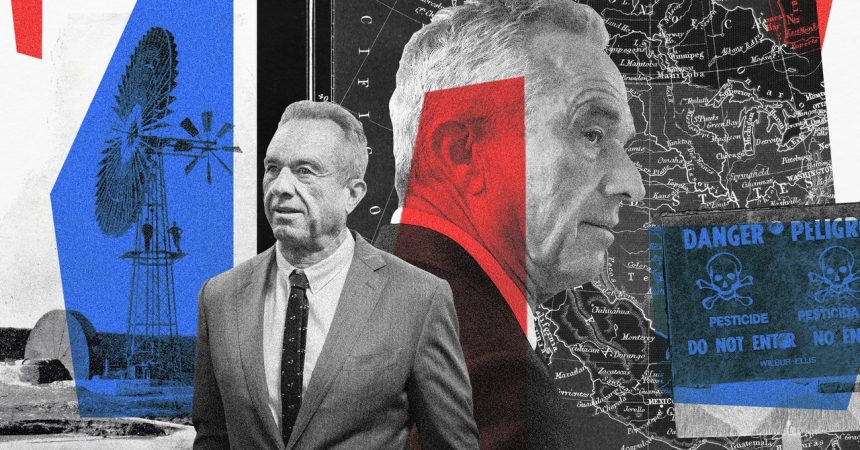Robert F. Kennedy Jr.’s nomination as Secretary of Health and Human Services (HHS) under a potential second Trump administration has sparked considerable controversy, particularly regarding his stance on organic farming and its implications for US agricultural policy, public health, and climate goals. Kennedy’s fervent advocacy for organic agriculture, while aligning with some consumer preferences for “natural” foods, clashes with scientific consensus on the environmental and economic viability of widespread organic adoption. His views, influenced by figures like Vandana Shiva, raise concerns about potential disruptions to food production, escalating food prices, and detrimental impacts on the environment.
A central point of contention revolves around the lower yields typically associated with organic farming compared to conventional methods. Achieving comparable levels of food production necessitates significantly larger land areas for organic crops, potentially leading to increased deforestation, habitat loss, and subsequent threats to biodiversity. The expansion of agricultural land also contributes to higher carbon emissions, counteracting efforts to mitigate climate change. The example of Sri Lanka’s abrupt shift to organic farming in 2021, resulting in severe economic and social turmoil, serves as a cautionary tale against rapid, large-scale transitions without careful consideration of the potential consequences.
Kennedy’s influence over agricultural policy as HHS secretary would be indirectly exerted through agencies like the Food and Drug Administration (FDA) and the National Institutes of Health (NIH). His potential actions include tightening regulations on pesticide residues, restricting genetically modified crops, and promoting research that supports litigation against conventional farming practices. Such actions could create uncertainty within the agricultural sector, discourage innovation, and potentially disrupt food supplies. Concerns exist that Kennedy might steer the FDA away from its regulatory role towards a more activist stance, potentially politicizing food safety and scientific research.
While Kennedy’s position gives him some leverage within the health domain, his influence on agricultural policy is likely to be constrained by other appointments within a potential Trump administration, particularly Brooke Rollins as the prospective Secretary of Agriculture. Rollins, seen as a conventional choice for the role, and her chief of staff, Kailee Tkacz Buller, formerly of the National Oilseed Processors Association, are expected to prioritize the interests of the established agricultural sector. Kennedy’s public criticism of seed oils, a key product for the oilseed industry, further highlights the potential for conflict within the administration.
Rollins’ commitment to aligning with President Trump’s agricultural agenda suggests a preference for policies that support conventional farming and the interests of large agricultural businesses. Given Trump’s reliance on rural voters and the agricultural industry, it is unlikely that he would endorse policies that could disrupt food production or alienate his core constituency. This political reality could serve as a check on Kennedy’s ability to implement drastic changes to agricultural practices.
Despite potential intra-administration conflicts, Kennedy’s advocacy for organic farming appears to be resonating with some conservative lawmakers, a shift from previous trends. This newfound interest in organic agriculture among conservatives could be attributed to Kennedy’s influence and the growing “Make America Healthy Again” movement. This evolving political landscape raises the possibility of future legislative initiatives that promote organic farming, potentially creating a more complex and contested arena for agricultural policy debates. The interplay between Kennedy’s agenda, the established agricultural lobby, and the political calculations of the Trump administration will ultimately determine the direction of US agricultural policy in a potential second term.



